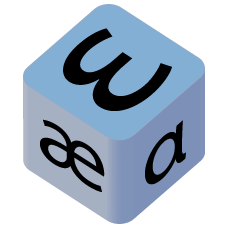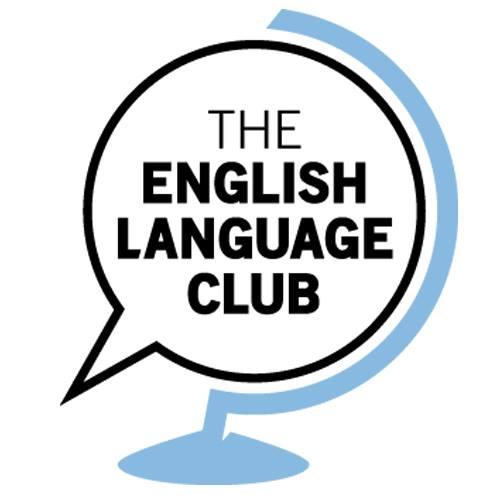
Learning to pronounce English words correctly can be one of the hardest parts of learning English, especially if there are sounds that your native language doesn’t have or you tend to get tripped up on tricky vowel pronunciation
Just see how “way,” “weigh” and “whey” are all said the same, for example, while “comb,” “bomb” and “tomb” are all pronounced differently.
That’s why I have 15 tips for you, to help you pronounce English words better.
Contents
- 1. Learn to listen.
- 2. Learn with the Best English Pronunciation Dictionaries Online
-
- Google Translate
- FluentU
- Forvo
- Merriam-Webster Dictionary
- WordReference
- Oxford Learner’s Dictionaries
- Collins Online Dictionary
- 3. Notice how your mouth and lips move.
- 4. Pay attention to your tongue.
- 5. Break words down into sounds.
- 6. Add stress to sounds and words.
- 7. Ask yourself which dialect of English you want to learn.
- 8. Exaggerate certain sounds (make them bigger).
- 9. Write out difficult words by their sounds.
- 10. Write down what you hear.
- 11. Practice with tongue twisters.
- 12. Use pronunciation podcasts and videos.
- 13. Record yourself.
- 14. Practice with a buddy.
- 15. Speak as much as you can.
Download:
This blog post is available as a convenient and portable PDF that you
can take anywhere.
Click here to get a copy. (Download)
1. Learn to listen.
Before you learn how to speak, you’ll need to learn how to listen. Some sounds can be hard to tell apart when you’re listening. Did the speaker sleep or slip? Did he hurt his chin or his shin? If you can hear the difference, it will be easier to speak the difference.
There are many guides to get you started in learning to listen. We have some great articles here about learning to listen from movies, songs and music and podcasts. You can also find listening exercises online, like this one from Rong-chang.
The pronunciation practice at Many Things is really slick, especially its huge selection of lessons on minimal pairs. Minimal pairs are pairs of words like sleep and slip, that are only different by one sound. You can click on each word to hear a complete sentence with each, then quiz yourself in the second box and click the correct answer.
2. Learn with the Best English Pronunciation Dictionaries Online
You probably already use a dictionary to translate English words, but online or digital dictionaries can offer many additional benefits, including pronunciation guides. These kinds of dictionaries can be one of the most useful tools you can have for practicing English pronunciation—best of all, they’re available online for free!
Here are some of the best pronunciation dictionaries you can find and use online.
Google Translate
Website | iOS | Android
You may have already used Google Translate during your English studies. Google Translate is an easy-to-use translator that also provides pronunciation guides for single words and whole sentences. As soon as you get to Google Translate’s interface, you can look up any word and it will give you a number of definitions and an audio pronunciation.
If you’re just looking for pronunciation help, type in Google search “how to say (insert word).” You will get both an audio pronunciation guide (which you can slow down) and a visual guide that shows how your mouth should move when saying the word.
FluentU
Website | iOS | Android
Many dictionaries don’t have pronunciation recordings made by an actual native speaker, and most don’t give you good examples of how to use words in context. Dictionaries can also be inefficient to use since you can’t know which definition out of several possibilities you’re looking for.
FluentU’s video and audio dictionary attempts to correct these problems. The program has many videos that give you context and let you hear words in natural situations, like in movie trailers, commercials, inspirational talks, music videos and more. It uses these videos to support its dictionary and give you specific definitions right from the subtitles of a video.
For example, when I did a search within the program for “date,” here’s what the program showed me:
But if I’m watching a clip from “Friends” and I want to know what Monica means when she says “date,” I can hover my mouse over the word and see the correct definition:
If I click on the word, I can even see other videos that use the word with that same meaning for more examples. I can also add the word to a vocabulary list as a flashcard.
FluentU provides native pronunciation at every step of the way: in the transcripts, subtitles, example sentences and even in the quizzes that follow videos and review flashcard decks.
Forvo
Website | iOS | Android
Forvo is a user-generated pronunciation guide in which native speakers submit audio clips of themselves saying certain words or phrases. You can look up a word, learn its definition and listen to how different people from different places say it. There are also pronunciations for whole sentences and phrases as well!
Forvo is well-liked because real people are the ones speaking the words. You can also see how certain speakers are ranked in their pronunciations; the pronunciations with the most likes may be the ones you should focus on.
Because the audio submissions can come from all over the world, you can listen to how the same word is said in different regional accents; the importance of this will be discussed in more detail later on.
Merriam-Webster Dictionary
Website | iOS | Android
Merriam-Webster is also known as “America’s most useful and well-known dictionary.” It’s no surprise then that it’s here on this list! The dictionary offers detailed definitions and information about the words you look up, as well as clear, good-quality audio pronunciations.
You can also download the free app version of this dictionary, which comes with some special features. With the app, you can search for words by speaking them out loud into your device’s microphone—this is great for when you don’t know how to spell a word, but it’s also good speaking practice. If there are any words that interest you, you can save them into your own “favorites” list.
WordReference
Website | iOS | Android
WordReference is a helpful multilingual dictionary. It supports translations for a lot of languages, so if your native language is included, you can find words in English by writing it out in your language, or search for English words and get translations in your language. This is very helpful when you want to make sure you’re getting the right translations.
WordReference also lets you listen to audio pronunciations in different English accents, more than many other dictionaries. Most online dictionaries may just offer one British pronunciation and one American pronunciation, but WordReference also specifies other specific accents such as Irish, Scottish, American Southern and even Jamaican. After you look up a word, you can click on the “Listen” button to pick the accent you want to hear and change the speed of the audio.
Oxford Learner’s Dictionaries
Website | iOS | Android
Oxford’s online dictionary, provided by the well-respected Oxford University Press, is a great resource for beginner learners. Sometimes, dictionaries can offer a lot of information that can make things confusing—Oxford’s dictionary takes out a lot of the confusion and gives you the main things you need. The definitions are written in an easy-to-understand manner and you get plenty of example sentences that show you how the word is used.
The dictionary has two pronunciation options: you can listen to the word spoken in British English or in American English. The pronunciations are done by different male and female humans (not robots!), which can be great for your listening practice.
Collins Online Dictionary
Website | iOS | Android
This dictionary offers most of what the other listed dictionaries have, but with some extra audio features. Once you look up a word, Collins dictionary also provides audio pronunciation of the word in its different forms (such as in past tense or participle form). There are even audio pronunciations for the example sentences that show the word in use, which can be very useful when you want to practice speaking in whole phrases.
Collins dictionary provides slightly different definitions: the first “Collins” definition, the second “British English” definition and the third “American English” definition. With each definition section, you can hear either the British or American pronunciation of the word. In some cases, there may even be a video clip of a real person saying the word!
One thing to note is that the example sentence pronunciations are done by a text-to-speech robot instead of a human. However, the voice doesn’t sound too unnatural or strange, so you can still find these pronunciations helpful!
A dictionary is a study tool that you’ll always want to have around when you’re studying and practicing English. If you ever learn a new word and aren’t sure how to pronounce it, then a dictionary with audio functions can give you immediate help.
3. Notice how your mouth and lips move.
When you speak, you move your mouth. How you move your mouth affects how you pronounce a word.
The first step to correcting your mouth shape is to notice it and pay attention. There are a few ways you can check that your mouth and lips are making the correct shape:
- Use a mirror. This is by far the simplest way to tell what your mouth is doing while you talk.
- Put a finger in front of your lips (like you’re saying “shh”). As you speak, don’t move your finger. You should feel your lips moving away from or pushing against your finger.
Watch other people and notice the shape their mouth and lips make when they talk. Try following along with your favorite TV show or movie. Can you repeat the faces and sounds that the actors are making?
There are guides and pictures online that will help you learn how to move your mouth. Sounds of English has some good explanations for pronouncing specific words. This guide is for people making 3D animations, but the pictures are a great start to understanding how your mouth should look when you speak.
You can also find great videos showing how to properly form the mouth and lip shapes when you’re speaking, like this one from Georgie Harding:
Feeling stiff? Loosen up your mouth and tongue and get ready to practice your speech with this fun warm-up exercise from Howcast!
4. Pay attention to your tongue.
The main difference between rice and lice is in your tongue. When you speak, you move your tongue to make sounds. You probably didn’t even notice that, since you do it without thinking. To improve your English pronunciation, it’s a good idea to check what your tongue is doing.
Some difficult sounds for non-native speakers to make are the letters “L” and “R,” and the sound “TH.” Pronouncing them correctly is all in the tongue!
- To make the “L” sound, your tongue should touch the back of your front teeth and the top of your mouth, just behind your teeth. Try it now: Say the word “light.” Say it a few times. Feel where your tongue is in your mouth. Make sure it touches the top of your mouth. For further practice, here’s a handy resource: scroll down for a free worksheet with L sound sentences and phrases specifically chosen by our linguist. It includes practical tips too that you can apply right away to improve your L sound pronunciation.
- To make the “R” sound, your tongue should not touch the top of your mouth. Pull your tongue back to the middle of your mouth, near where it naturally rests if you weren’t saying anything. As you say the sound, your lips should be a little rounded. Try it now: Say the word “right” a few times. You should feel air blowing between your tongue and the top of your mouth as you speak. You should also feel your lips get a little rounder when you make the sound.
- Now for the “TH” sound. This one may seem strange if you don’t have a similar sound in your native language. To make this sound, put your tongue between your top and bottom teeth. Your tongue should stick out a little between your teeth, and as you push air out of your mouth, let some air escape between your tongue and teeth—that’s what makes the sound. Try it now: Say the word “think.” Repeat it a few times. Make sure you push your tongue between your teeth.
Now that you know where to put your tongue, can you hear the difference?
For a more detailed explanation on how to make those three sounds correctly, watch this video from the Woosong University:
Or check out this one from Club English:
There are many other pronunciation guides on YouTube, so look around for one that helps you master the sounds of the language!
If you can’t figure out what to do with your tongue to make the right sound, try asking someone. Ask them to say a word with that sound, then tell you where they put their tongue. They probably never thought about it before, either!
5. Break words down into sounds.
Words are made up of syllables, or parts. The word “syllable,” for example, has three syllables: syl-la-ble. Turning words into parts can make them easier to pronounce.
To check how many syllables a word has, place your hand flat just under your chin. Say the word slowly. Each time your chin touches your hand, that’s a syllable.
You can even write the word down in parts. Leave a space or draw a line between each syllable (every syllable should have at least one vowel: a, e, i, o, u, y). Now try saying the word. Say it slowly and pause after each syllable. Isn’t that easier?
If you’re having trouble with syllables, you can check out How Many Syllables. This website shows you the syllables in any word you look up, and even shows you how to pronounce it.
6. Add stress to sounds and words.
English is a stressed language. That means some words and sounds are more important than others. You can hear this when you say a word out loud. For example, the word “introduce” is pronounced with a stress at the end, so it sounds like this: “in-tro-DUCE.”
Sometimes where you put the stress in a word can change the word’s meaning. Say this word out loud: “present.” If you said “PREsent,” you are talking about a noun that means either “right this moment” or “a gift.” If you said “preSENT,” you are talking about a verb that means “to give or show.”
There are rules for where the stress goes in each word. Here’s one rule:
- Most two-syllable nouns are stressed on the first syllable, and most two-syllable verbs are stressed on the second syllable.
That’s just like the word “present.” Here’s another example: the noun “ADDress” is the place where you live, and the verb “addRESS” is to speak to someone.
If this all sounds too complicated, don’t worry about memorizing all these rules—the best way to learn is by listening and practicing. Remember that most native English speakers don’t know the rules either, they just say what “sounds right.” With enough practice, you can get what sounds right too.
This video about six common English mistakes goes over word stress in detail in the first point:
Keep watching the rest of the video for other useful tips for avoiding some of the most common English learner mistakes.
Watch this video from mmmEnglish for more information about syllable stress in English:
Sentences have stresses too; some words are more important, and are said with more clarity and strength than the rest of the sentence. Try reading this sentence aloud: “I ate some toast with butter in the morning.”
The sentence should have sounded like this (the bold words are the stressed ones): “I ate some toast with butter in the morning.” Notice how you slow down every time you get to an important word, and quickly pass over the less important ones?
Keep practicing by reading out loud, having conversations and listening well to where others place stress when they speak.
7. Ask yourself which dialect of English you want to learn.
When you speak English, do you want to sound like you’re from America or England? Australia or New Zealand? Maybe Canada or South Africa.
Choosing your dialect of English is one of the first decisions to make on your English-learning journey. First of all, it will determine much of the vocabulary you learn. For example, English speakers in Ireland use different terms for certain things than English speakers in the United States—especially when it comes to slang.
Second, this choice will drastically affect your pronunciation.
The two most common types of English for ESL students are probably American English and British English.
Choosing which type will affect how you pronounce sounds. For example, in America, the “r” sound at the end of a word is much harsher.
And when a “t” appears in the middle of a word, Americans often pronounce it as a “d,” while the British pronounce it as a hard “t.” Think of words like “water,” “whatever” or “lighter.”
That’s just the beginning. I could go on and on!
Choosing between American and British English will also drastically alter how you say words like “aluminum,” “schedule,” “garage” and “mobile,” just to name a few.
Once you’ve chosen which dialect of English you want to take on, base your studying methods and tools on that decision.
For instance, if you want to learn American English, you wouldn’t want a British language exchange partner, would you? You’re going to emulate the sounds you hear, so you want to find people and resources that will feed you the right accent.
Watching movies and TV shows are fantastic ways to learn English and pick up accents. I particularly love watching TV series, because you have hours of content, and you learn to understand characters’ accents over time.
If you’re looking for a British TV show, I recommend “The Crown,” a drama about Queen Elizabeth II. I also love “The Great British Baking Show.” This reality show is lighthearted and fun to watch, and you’ll pick up modern slang.
How about English shows? “Friends” is a classic option for learning English, and many Americans will love to talk about it with you. “Brooklyn Nine-Nine” is a sitcom that’s currently on the air that centers around cops (policemen and women) in New York City.
You can also find learning materials that expose you exclusively to your desired dialect. Take apps, for example.
If you want to learn British English, LearnEnglish Sounds Right will provide an English pronunciation guide for people wanting to attain a British accent, and you can download it for your iOS or Android device.
ELSA Speak: English Accent Coach is a great app for learning how to speak like an American. Download it at the Apple or Google Play store.
You can also use resources besides apps, and they can be just as useful in helping you get the dialect you want.
As you can see, your choice of dialect will affect every other decision you make regarding English pronunciation!
8. Exaggerate certain sounds (make them bigger).
Anyone who has acted in the theater knows about exaggeration.
Have you ever been on stage and made a facial expression or reacted to someone else’s line, only for your director to yell, “Do it bigger!” On the stage, you have to exaggerate to appear normal to the audience.
English pronunciation is the exact same way.
Depending on what your native language is and which dialect of English you’re studying, you’ll find certain sounds to be difficult. Actually, I think every ESL student I’ve met who is learning American English struggles with the American “r” sound!
So how do you master a tricky sound like this?
Exaggerate. Exaggerate the sound until you feel ridiculous. Exaggerate until you’re sure it’s so over the top that people are going to make fun of you.
Are you exaggerating to the point that you feel stupid? Then you’re probably on the right path.
If you’re super over the top in your pronunciation, you’ll become more and more aware of the shape of your mouth and the placement of your tongue when you make that sound.
Believe it or not, exaggerating these sounds will likely make it easier for native speakers to understand you. You may think you sound corny because you aren’t used to making these sounds. But for a native speaker, you’ll sound way more authentic than a foreigner who is shy about these sounds.
What’s the goal? Eventually, you will be so used to the shape your mouth makes that you won’t be conscious of exaggerating, and you won’t be thinking of English pronunciation rules as you speak. And that’s when you know you’re on the path to fluency.
9. Write out difficult words by their sounds.
Having trouble with certain words? Try writing them out.
No, not just the word. Try writing it out phonetically (by their sounds instead of their spelling).
Let’s say you’re struggling with the word pizza. Write it out phonetically: piːtsə.
When you look at the phonics, you can see that the double-z is pronounced like a “ts.”
Try making flashcards. Write the word on one side, then spell it out phonetically on the other side. If it helps, you can highlight the letters on each side that you’re testing yourself on. (This can be especially useful for visual learners!)
Writing things out phonetically can be difficult, especially if it’s in your second language. If you need help, visit EasyPronunciation.com. Type in the word or sentence you need help with, and the website will transcribe it phonetically for you. (Bonus—it lets you choose between American and British English!)
10. Write down what you hear.
Want to master English pronunciation? Sit down and listen. Listen to someone speak and write down what they are saying.
You might be thinking, “Hey, I’m here to practice English speaking, not listening!”
However, listening is an excellent way to improve English pronunciation.
In my high school French classes, we had to take dictation (write what the teacher said) every week. The teacher spoke for 20 minutes, and we had to write down exactly what she said. Trying to decipher her accent and write down what we heard made me understand French spelling and pronunciation better.
Don’t have an English teacher who wants to talk aloud for 20 minutes at your disposal? There are plenty of ways to find a resource!
EnglishClub is a great dictation website, regardless of your learning level. Choose from elementary, intermediate or advanced dictation.
You’ll listen to the dictation once at normal speed. Then a second time at a slowed-down speed so you can write it down. Listen for a third time at a normal speed. Then check your answer.
YouTube also has many options to practice your listening and writing skills. Get started with Speak English with Vanessa’s Dr. Seuss dictation video:
You can also watch a scene from a TV show or movie and write down what you hear. If you’re watching on a service that provides subtitles, play the scene again with subtitles to check your work.
If you recognize difficult sounds when you hear them, it’s likely that you’ll learn how to say them.
11. Practice with tongue twisters.
When speaking English, do you struggle with sounds that are similar? Like “sh” and “ch,” “t” and “th” or the short and long “e” sounds?
Don’t worry, you’re not the only one. Not by a long shot.
Wondering how to improve your English accent in a way that’s a bit more entertaining? Tongue twisters can be a fun (but tricky!) way to practice differentiating between two sounds.
Tongue twisters are poems that can be hard to recite because a lot of the sounds are similar. In English-speaking countries, people say them just because it’s funny when you mess up and sound silly. And it’s satisfying when you finally master the poem!
Here are a few examples of popular, effective English tongue twisters:
Want to practice the “s” and “sh” sounds? Here’s one:
She sells seashells by the seashore.
That’s a very famous tongue twister. But once you’ve got that down, try adding on a few less well-known lines:
The shells she sells are sea-shells, I’m sure.
For if she sells sea-shells on the sea-shore
Then I’m sure she sells sea-shore shells.
Alright, now let’s try one to practice the “cl” and “cr” sounds:
How can a clam cram in a clean cream can?
And now one for the “sh” and “ch” sounds:
If a dog chews shoes, whose shoes does he choose?
Want to practice different sounds with tongue twisters? Take a look at this list here.
You can also hear some tongue twisters spoken by a native English speaker on Rachel’s English (and see that even native speakers can have trouble mastering these tricky twisters!):
12. Use pronunciation podcasts and videos.
There are some excellent video and audio guides on English pronunciations that you can use to improve. The English Language Club has videos that show how to make different sounds in English. Rachel’s English has friendly videos on how to speak and pronounce American English in everyday conversations.
If you like podcasts better, Pronuncian has over 200 audio files that help with everything from pronunciation to stress and pitch (how you raise and lower your voice while you speak).
If none of these are what you’re looking for, there are many more to choose from. Find the one that’s right for you.
13. Record yourself.
One way to tell if all your practice is working is to record yourself with a camera. Use a camera and don’t just a sound recorder because it’s important to see how you speak, not only hear it.
You don’t need to download any special software to record yourself; most computers and mobile devices have built-in video recorders. You can use PhotoBooth on a Mac or Movie Moments on a Windows computer. The specific programs change with time (the Movie Moments program, for instance, might not be available anymore by the time you read this) but as long as a computer has a camera, you should be able to record videos with it. Your phone or mobile device also has a video capturing app, usually as part of the camera app.
Compare your recording to someone else saying the same words or sounds. Find a video of your favorite part from a movie. Choose one or two sentences and record yourself trying to match the stress, tone and pronunciation of the video. Then you can compare the two and see what you did differently, and try again.
Ask a friend or watch a video to check. If your pronunciation doesn’t sound the same, ask yourself some questions: Are you moving your mouth the right way? Is your tongue in the right place? Are you stressing the right part of the word? Use everything you learned in this article so far!
14. Practice with a buddy.
As always, “Practice makes perfect!” And it’s easier to practice with a friend. Find someone to practice pronunciation with, either in person or through online communities like Language Exchange or InterPals.
Practicing with a buddy (friend) will give you a chance to try everything you learned, and learn new things from each other. Plus, it’s fun!
15. Speak as much as you can.
If you don’t speak often, you can become nervous when it’s finally time to open your mouth and say something in English.
It’s like playing basketball. You might be good at running, dribbling and passing. But you never shoot the ball.
You know how to shoot the ball. You watch other people do it all the time. But you’ve never done it.
When it’s time to play and you get a chance to shoot, it would be hard. Plus, you’d become so nervous by doing something new in front of other people that your nerves could paralyze you.
It’s the same with speaking English. Not only do you need English pronunciation practice, but you need to get over your nerves so that you feel comfortable speaking in front of others. Nerves can lead to a lot of mistakes, especially regarding pronunciation.
Try making a rule for yourself: You must speak English to yourself at home. To start, try just narrating what you’re doing when you’re cooking dinner or getting ready for bed.
Promise yourself that you’re going to speak aloud for at least a few minutes per day.
Remember, practice makes perfect!
Pronunciation is as important to learning English as vocabulary and grammar. Thanks to these 15 tips, you’ll soon be on your way to pronouncing English like a native.
Download:
This blog post is available as a convenient and portable PDF that you
can take anywhere.
Click here to get a copy. (Download)
English Pronunciation Secrets – Video
What do you need to know to pronounce English well? Pronunciation includes many different ideas and skills. Find out more details in this free lesson.
See the full lesson here
Try Your First Online Class With A Teacher
Book your first Oxford Online English lesson for just 5.99 EUR
Get Started
Weak Forms in English – Video
Learn about the pronunciation of weak forms in English with this free video lesson. You can learn which words have weak forms and how to pronounce them.
See the full lesson here
English Pronunciation of The Schwa /ə/ – Video
The schwa is the most common sound in English, and also the most important. Learn more about the schwa sound, and why you need it, in this free lesson….
See Full Lesson
English Sounds and Spelling – Video
In this lesson, you’ll learn about English pronunciation and English spelling. You can see the difference between how you write a word and how you say a word….
See Full Lesson
Silent Letters – Video
Learn about silent letters in English with this pronunciation lesson. Improve your English pronunciation and spelling by learning how to find and pronounce silent letters in a word….
See Full Lesson
Sentence Stress – Video
In this lesson, you can learn about sentence stress in English. Stress means that you pronounce some syllables more strongly than others. There are many different types of stress in……
See Full Lesson
Intonation in English – Video
In this lesson, you can learn about intonation in English. How important is intonation? Let’s see. Look at a sentence: Do you need some help? By changing the intonation of……
See Full Lesson
English Pronunciation Secrets – Video
What do you need to know to pronounce English well? Pronunciation includes many different ideas and skills. Find out more details in this free lesson….
See Full Lesson
How to Pronounce Vowel Sounds – Video
In this lesson, you can learn about English vowel sounds, and how to pronounce them. This lesson will give you an overview of the pronunciation of English vowel sounds. You’ll……
See Full Lesson
Syllables and Word Stress – English Pronunciation Lesson
In this class, you can learn about syllables and word stress in English. See how to count syllables and pronounce English with the correct word stress….
See Full Lesson
How to Read IPA – Video
In this lesson, you can learn how to read IPA and use it correctly. You’ll see how using IPA can improve your English pronunciation and help you to avoid pronunciation……
See Full Lesson
Vowels can be considered the cornerstone of the English writing system. Nearly every word requires at least one vowel to be formed and pronounced correctly. Let’s quickly go over some of the most common vowel sounds and examples of how they’re used.
But first, a quick note:
Just in case you haven’t learned this yet or need to brush up, we’ll be discussing short and long vowel sounds below. A short vowel sound is basically when the vowel is not long. A long vowel sound is when the vowel is pronounced by saying the name of the letter (for example, in the word “grape” and “fight” the bolded vowels are long).
Now, let’s take a look at the English vowels’ pronunciation.
1- Individual Vowel Sounds
- A
The letter “A” has both a short sound (like in “apple”) and a long sound (like in “ape”).
It can also sound like a short “o,” usually when followed by “u.” For example, in the word “auto.”
- E
The letter “E” has both a short sound (like in “hello”) and a long sound (like in “ear”).
It can also sound like a short “o,” like it does in the first letter of “entree.” As for the two “ee”s at the end, we’ll cover this in the next section.
- I
The letter “I” has both a short sound (like in “in” and a long sound (like in “irate”).
- O
The letter “O” has both a short sound (like in octopus) and a long sound (like in orange).
- U
The letter “U” has both a short sound (like in “under”) and a long sound (like in ukelele).
2- Vowel Combinations
Above we discussed single vowel sounds, or how vowels are pronounced when they’re by themselves in a word. Now, we’ll go over some vowel combinations. You’ll notice that some of these can have multiple pronunciations depending on which letters are around it.
You can even say the following example English pronunciation sentences out loud for American English pronunciation practice!
1.) aa (baa)
Pronunciation: Short “o” sound.
Example sentence: Sheep say “baa.”
2.) ae (archaeologist or bae)
Note the difference: In the first word, “ae” makes the long “e” sound. In the second word, it makes the long “a” sound.
Example sentence 1:Harold studied to become an archaeologist.
Example sentence 2: Anne called Thomas “bae” the other day.
3.) ai (hair)
Pronunciation: Like the long “a” sound, but a little softer.
Example sentence: Samuel’s hair is a beautiful golden color.
4.) ao (chaos)
Pronunciation: In this case, you say the “a” part first with its long sound, immediately followed by the short “o” sound. This one can be tricky, but we know you’ll get the hang of it with enough practice!
Example sentence: When the internet went down, the neighborhood found itself in chaos.
5.) au (audio)
Pronunciation: Short “o”sound.
Example sentence: She couldn’t figure out how to fix the audio on her computer.
6.) ea (eat)
Pronunciation: Long “e” sound.
Example sentence: What time do you want to eat dinner?
7.) ee (feel)
This double vowel has two common pronunciations, outlined below.
Pronunciation 1: Long “e” sound.
Example sentence 1: Linda didn’t know what to feel after failing the exam.
Pronunciation 2: Long “a” sound.
Example sentence 2: Riley’s mouth watered as the waiter brought out the entree.
8.) ei (weird)
Pronunciation: Long “e” sound.
Example sentence: Everyone thought it was really weird when Ellen left the party early.
9.) eo (theology)
Pronunciation: This is another tricky one like “ao.” This one is pronounced by first saying the “e” with its long sound, immediately followed by the “o” with its short sound.
Example sentence: Harold wasn’t satisfied with his archaeology career, so he quit and studied theology.
By the way, if you noticed the “aeo” in Harold’s first career choice, worry not. We’ll go over how to pronounce this, as well as a couple of other triple vowel combinations, in the next section.
10.) eu (euro)
Pronunciation: In the word above, this vowel combination is pronounced sort of like the “y” sound. (Imagine saying “yuro.”)
Example sentence: Reynold only had euros on him, so he couldn’t purchase the shirt he wanted on vacation.
11.) ia (Maria orMariah)
Note the difference: In the first word, the “i” in ia makes a long “e” sound, and the “a” makes a short “u” sound. In the second word, because the vowel combination is followed by an “h,” the “i” makes a long “i” sound and the “a” maintains its short “u” sound.
Example sentence 1: Maria didn’t feel well, so she left school early.
Example sentence 2: Mariah sat alone at lunch because her friend Maria was gone.
12.) ie (carries)
Pronunciation: Long “e” sound.
Example sentence: Elisa carries a lot of responsibility, having three kids.
13.) io (Mario)
Pronunciation: Another tricky one. First pronounce the “i” with a long “e” sound, and then the “o” with a long “o” sound.
Example sentence: Mario built a really cool airplane model yesterday.
14.) oa (boat)
Pronunciation: Long “o” sound.
Example sentence: After building an airplane model, he wanted to make a boat next.
15.) oe (toe)
Pronunciation: Long “o”sound.
Example sentence: Carmen had to keep from shouting after stubbing her toe on the table leg.
16.) oi (oink)
Pronunciation: This really is its own sound, and is most often used in onomatopoeia (such as “oink,” the sound a pig makes). It’s also used in the word “poignant” with the same sound. It’s pronounced a lot like “oy.”
Example sentence: Pigs say “oink.”
17.) oo (boo or book)
Note the difference: In the first word, “oo” makes the traditional “oo” sound (like when something interesting happens, and you say “ooh that’s cool.”). In the second word, because it ends with a “k,” the “oo” makes a softer sound that’s almost like a short “u” sound.
Example sentence 1: “Boo!” she shouted from behind the door as her brother walked in.
Example sentence 2: Cassidy’s favorite book went missing after the garage sale.
18.) ou (out or dough)
Note the difference: In the first word, “ou” makes the sound that sounds like “ow.” In the second word, it makes the long “o” sound (keep in mind that this is true in most cases where the “ou” is followed by the letters “gh”).
Example sentence 1: Susan ran out of milk, so she had to buy some more.
Example sentence 2: She came back home, only to realize she needed ingredients to make dough too!
19.) ua (nuance)
Pronunciation: This one can be tricky. The “u” makes the “oo” sound, while the “a” makes the short “o” sound.
Example sentence: There are lots of nuances when it comes to the English language; good thing you have EnglishClass101.com to help!
20.) ue (due or duet)
Note the difference: In the first word, the “ue” simply makes the “oo” sound (as in “boo”). In the second word, you start by pronouncing the “u” with the same “oo” sound, then pronounce the “e” part with its short “e” sound.
Example sentence 1: Cassidy borrowed her favorite book from the library, but forgot when it was due!
Example sentence 2: Stan thought the duet on stage was lovely.
21.) ui (suite or built or quilt)
Note the difference: In the first word, “ui” sounds exactly like the word “we.” In the second word, it makes a short “i” sound (imagine replacing the “ui” with just an “i” in the word when pronouncing it). In the third word, it sounds more like the beginning of the word “win.” Note that it’s only after the letter “q” that “ui” makes this “wi-” sound.
This vowel combination can be difficult to master, considering its multiple possible sounds in a word. This makes practice essential.
Example sentence 1: Mark told me you were having a hard time getting into your suite at the hotel!
Example sentence 2: Jan couldn’t believe that John built the house himself.
Example sentence 3: Anne Marie really loves the quilt her grandmother made for her.
22.) uo (duo)
Pronunciation: Here, you pronounce the “u” with the “oo” sound (as in “boo”), and then pronounce the “o” with its long “o” sound.
Example sentence: Don’t you think Natalie and Chad make a great duo?
3- Note on Triple Vowel Combinations
There are also many instances when you’ll find three vowels all put together in a word, but we won’t go too much into that in this article. But as promised, here are a few which are particularly worth mentioning:
- aeo (as in “archaeology” or “caeoma“)
- Triple vowel sequences are rarely pretty or simple, and this is no exception. In the first word, “aeo” is pronounced as though the “a” wasn’t there; it simply makes the “eo” sound, with a short “o.” In the second word (which, by the way, you won’t be hearing in your everyday conversations!), “aeo” is pronounced again like the “a” is missing. But here, the “o” in the “eo” sound is long.
- This is one you’ll find often in the English language as a suffix. In the first word, the “i” is pronounced with its long “i” sound, followed by the “ou” which sounds like a short “u” sound (as in “us”). In the second word, the “i” is pronounced with a long “e” sound, followed by the “ou” which again sounds like a short “u” sound.
- This one trips up even native English speakers sometimes, especially when it comes to spelling. In the first word, the “e” is pronounced with its long “e” sound, followed by the “au” which is simply pronounced as a long “u.” In the second word, the entire “eau” is pronounced as a long “o.” (I know, it’s terrible!)
You’ll come across many triple-vowel words as you encounter more and more English in daily life. If you have difficulty with these, really, there’s no reason to worry. Just about everyone does. Keep up the practice, though, and you can conquer!
Learning English can be hard. And pronouncing English can be one of the hardest parts.
For many languages, the way that sounds are written are consistent. Once you know the system, pronouncing things correctly can be easy.
That’s for most languages, but English is different.
We want to help! First you need to understand 2 major problems in understanding English pronunciation
Problem 1:
English spelling is crazy!
Solution:
Punch a wall, hold your breath, scream, or just get used to it.
Problem 2:
English has too many different ways to write the same sound. Students see a word pronounced one way and then incorrectly apply that sound to words with similar spelling patterns.
Let’s look at some examples: ‘idea’ and ‘sea’; words with two very different sounds that are spelled with the same ‘e’ and ‘a’ letter combination.
Or worm and storm. Worm, storm, erm, orm. The sounds are different, but the spelling is the same.
Solution:
Learn the different ways that similar sounds are written. That will help you correctly pronounce new words.
How To Use This Guide
We will be using a famous poem called ‘The Chaos’ to help you improve your understanding of English pronunciation and spelling.
This poem is broken up into 6 section. Each section has a Part A, Part B, and Part C.
Part A — Poem: Listen to the poem and read along. Learn the meaning of new words in the vocabulary sidebar.
Part B — Practice: Listen to different words taken from the poem with similar sounds. Practice repeating after the audio. Pay special attention to the spelling.
Part C — Quiz: Test your knowledge of some of the new vocabulary with our interactive word games.
Poem: The Chaos by G. Nolst Trenite
Section 1 — Part A: Poem
- Dearest creature in creation,
- Study English pronunciation.
- I will teach you in my verse
- Sounds like corpse, corps, horse, and worse.
- I will keep you, Suzy, busy,
- Make your head with heat grow dizzy.
- Tear in eye, your dress will tear.
- So shall I! Oh hear my prayer.
- Just compare heart, beard, and heard,
- Dies and diet, lord and word,
- Sword and sward, retain and Britain.
- (Mind the latter, how it’s written.)
Section 1 — Part B: Practice
- creature: bleacher, teacher, preacher, feature
- creation: station, nation, cremation, deflation, Haitian, aberration
- verse: terse, nurse, hearse, worse, curse
- corpse: warps, thorpes
- corps: chore, more, tore, bore, roar, oar, store, soar
- dizzy: tizzy, Lizzy, fizzy, busy
- tear: ear, beer, cheer, steer, mere, hear, here
- prayer: lair, fair, chair, pair, care, bear
- retain: brain, chain, detain, remain, abstain, insane
Section 1 — Part C: Quiz
- creature: an animal or other being, generally non-human
- creation: the action of bringing something new into existence
- verse: writing that has a rhyme and/or rhythm
- corpse: a dead body, usually human
- corps: a main subdivision of the military
- dizzy: describes the feeling of spinning around and losing one’s balance
- tear: a drop of clear salty liquid that comes out of your eyes when you cry
- tear: pull or rip apart with force
- prayer: an expression of thanks or request for help addressed to God or other object of worship
- retain: keep; continue to have
Section 2 — Part A: Poem
- Now I surely will not plague you
- With such words as plaque and ague.
- But be careful how you speak:
- Say break and steak, but bleak and streak;
- Cloven, oven, how and low,
- Script, receipt, show, poem, and toe.
- Hear me say, devoid of trickery,
- Daughter, laughter, and Terpsichore,
- Typhoid, measles, topsails, aisles,
- Exiles, similes, and reviles;
- Scholar, vicar, and cigar,
- Solar, mica, war and far;
- One, anemone, Balmoral,
- Kitchen, lichen, laundry, laurel;
- Gertrude, German, wind and mind,
- Scene, Melpomene, mankind.
- Billet does not rhyme with ballet,
- Bouquet, wallet, mallet, chalet.
Section 2 — Part B: Practice
- plague: vague, Hague
- bleak: sleek, meek, reek, sneak, peek, peak, pique
- streak: leak, speak, creek, eek, freak
- receipt: beat, beet, treat, meat, meet
- devoid: android, annoyed, avoid, destroyed
- scholar: dollar, collar, holler
- vicar: thicker, wicker, kicker, ticker, Flickr
- laurel: floral, choral, oral, moral
- bouquet: hooray, display, pray, prey, allay, away,
Section 2 — Part C: Quiz
- plague: cause continual trouble or distress to
- bleak: plain; barren; lacking color or life
- streak: a long, thin line or mark of a different color or texture than its surroundings
- receipt: the action of receiving something
- devoid: entirely lacking or free from.
- scholar: a distinguished academic, often in the humanities
- vicar: (in the Roman Catholic Church) a representative of a bishop
- laurel: a kind of plant or shrub with dark green glossy leaves
- bouquet: a nicely arranged bunch of flowers; often presented as a gift
Section 3 — Part A: Poem
- Blood and flood are not like food,
- Nor is mould like should and would.
- Viscous, viscount, load and broad,
- Toward, to forward, to reward.
- And your pronunciation’s OK
- When you correctly say croquet,
- Rounded, wounded, grieve and sieve,
- Friend and fiend, alive and live.
- Ivy, privy, famous; clamour
- And enamour rhyme with hammer.
- River, rival, tomb, bomb, comb,
- Doll and roll and some and home.
- Stranger does not rhyme with anger,
- Neither does devour with clangour.
- Souls but foul, haunt but aunt,
- Font, front, wont, want, grand, and grant,
- Shoes, goes, does. Now first say finger,
- And then singer, ginger, linger,
- Real, zeal, mauve, gauze, gouge and gauge,
- Marriage, foliage, mirage, and age.
Section 3 — Part B: Practice
- flood: blood, spud, dud, scud, crud, mud
- mould: bold, cold, fold, gold, told, scold
- grieve: cleave, heave, sleeve, thieve, bereave
- fiend: cleaned, weaned, screened,
- enamour: clamour, stammer, crammer, rammer
- rival: arrival, outrival, revival, survival
- devour: cower, flower, power, sour,
- haunt: aunt, daunt, jaunt, taunt, flaunt
- zeal: eel, deal, feel, peel, real, reel, deal
Section 3 — Part C: Quiz
- flood: an overflowing of a large amount of water, especially over what is normally dry land
- mould: a hollow container used to give shape to hot liquid material (like metal or wax) when it cools or hardens
- grieve: mourn; suffer feelings of sadness over a loss of a loved one
- fiend: an evil spirit or demon
- enamour: be filled with a feeling of love for
- rival: a person competing with another for the same objective; opponent
- devour: eat hungrily or quickly
- haunt: be disturbed regularly by the presence of a ghost or spirit
- zeal: great enthusiasm in pursuit of a cause or an objective
Section 4 — Part A: Poem
- Query does not rhyme with very,
- Nor does fury sound like bury.
- Dost, lost, post and doth, cloth, loth.
- Job, nob, bosom, transom, oath.
- Though the differences seem little,
- We say actual but victual.
- Refer does not rhyme with deafer.
- Feoffer does, and zephyr, heifer.
- Mint, pint, senate and sedate;
- Dull, bull, and George ate late.
- Scenic, Arabic, Pacific,
- Science, conscience, scientific.
- Liberty, library, heave and heaven,
- Rachel, ache, moustache, eleven.
- We say hallowed, but allowed,
- People, leopard, towed, but vowed.
- Mark the differences, moreover,
- Between mover, cover, clover;
- Leeches, breeches, wise, precise,
- Chalice, but police and lice;
- Camel, constable, unstable,
- Principle, disciple, label.
Section 4 — Part B: Practice
- query: leery, weary, dreary, teary
- fury: jury, pluri, curie, Yuri
- mint: sent, lent, tint, tent, bent, cent
- scenic: enoch, phrenic, splenic, hygenic
- heaven: seven, eleven, brethen, Kevin, Evan
- ache: bake, drake, flake, shake, make, take, steak, stake
- towed: mowed; toad, load, mode, bode, code
- breeches: itches, witches, bitches, snitches
- lice: rice, ice, nice, entice
Section 4 — Part C: Quiz
- query: a question, especially one addressed to an official or organization
- fury: wild or violent anger
- mint: an herb with a distinct flavor, often used in breath freshening candies and toothpastes
- scenic: related to beautiful or impressive views of nature
- heaven: a metaphorical place where good souls go when their bodies die
- ache: a continuous dull pain in a person’s body
- towed: the state of having been pulled from one place to another
- breeches: pants; trousers
- lice: a very small insect that lives on the skin of a person or animal and feeds off their blood
Section 5 — Part A: Poem
- Petal, panel, and canal,
- Wait, surprise, plait, promise, pal.
- Worm and storm, chaise, chaos, chair,
- Senator, spectator, mayor.
- Tour, but our and succour, four.
- Gas, alas, and Arkansas.
- Sea, idea, Korea, area,
- Psalm, Maria, but malaria.
- Youth, south, southern, cleanse and clean.
- Doctrine, turpentine, marine.
- Compare alien with Italian,
- Dandelion and battalion.
- Sally with ally, yea, ye,
- Eye, I, ay, aye, whey, and key.
- Say aver, but ever, fever,
- Neither, leisure, skein, deceiver.
- Heron, granary, canary.
- Crevice and device and aerie.
- Face, but preface, not efface.
- Phlegm, phlegmatic, ass, glass, bass.
Section 5 — Part B: Practice
- worm: squirm, firm, term, germ, perm
- tour: lure, sure, cure, demure
- four: score, fore, more, roar, core, bore, boar, roar
- alas: bass, glass, pass, sass
- battalion: scallion, stallion, Italian
- ever: never, clever, sever, lever, Trevor
- deceiver: beaver, cleaver, griever, weaver
- crevice: clevis, levis, nevis
- bass: race, case, face, mace, lace, ace
Section 5 — Part C: Quiz
- worm: a long, soft-bodied, legless, blind, invertebrate.
- tour: a trip that goes to many places
- four: a number between 3 and 5.
- alas: an old expression of grief, pity, or concern
- battalion: a large body of military troops ready for battle in the field
- ever: at all times
- deceiver: someone who misleads by a false appearance or statement
- crevice: a narrow opening or crack, especially in a large rock or wall
- base: the bottom support of something
Section 6 — Part A: Poem
- Large, but target, gin, give, verging,
- Ought, out, joust and scour, scourging.
- Ear, but earn and wear and tear
- Do not rhyme with here but ere.
- Seven is right, but so is even,
- Hyphen, roughen, nephew Stephen,
- Monkey, donkey, Turk and jerk,
- Ask, grasp, wasp, and cork and work.
- Pronunciation (think of Psyche!)
- Is a paling stout and spikey?
- Won’t it make you lose your wits,
- Writing groats and saying grits?
- It’s a dark abyss or tunnel:
- Strewn with stones, stowed, solace, gunwale,
- Islington and Isle of Wight,
- Housewife, verdict and indict.
- Finally, which rhymes with enough,
- Though, through, plough, or dough, or cough?
- Hiccough has the sound of cup.
- My advice is to give up!!!
Section 6 — Part B: Practice
- ought: bought, naught, taught, thought
- scour: hour, flower, tower, power, shower
- roughen: toughen, muffin, puffin
- donkey: honkey, tonkey, wonky
- wits: flits, kits, knits, pits, sits, mitts
- abyss: bliss, hiss, miss, piss
- strewn: boon, dune, goon, spoon, rune, toon, coon
- indict: blight, might, write, sight, kite, tight
- plough: wow, cow, bow, foul, now, vow, chow, brow
Section 6 — Part C: Quiz
- ought: word used to indicate duty or correctness, especially concerning another person’s actions
- scour: to remove dirt or grease by rubbing very quickly and hard
- roughen: to make a more coarse or uneven surface on something
- donkey: a 4-legged hoofed animal that looks like a small horse with long ears
- wits: mental sharpness; creative intelligence
- abyss: a deep, dark, bottomless hole
- strewn: scattered over a large area
- indict: formally charge with a serious crime
- plough: a farming tool used to turn over the earth in preparation to plant seeds
Welcome to EnglishClub Pronunciation for ESL learners, where you’ll find lessons and resources on the way we say words in English, many with audio for you to listen to.
- What is Pronunciation?
- What’s the Difference Between Vowels and Consonants?
- Pronunciation Quizzes
- Pronunciation Games
Human Speech System
Basic explanation of the physical way that we make speech sounds, syllables and word
Word Stress 🔈
The secret key to speaking English! Many languages don’t use word stress but English does, and so must you! With Quiz
Sentence Stress 🔈
Like word stress, sentence stress is a fundamental part of the English language. Your speech will improve immediately if you start using sentence stress!
Linking 🔈
Linking is important in English. When we say a sentence, we join or «link» many of the words.
Homophones
Homophones are words that have exactly the same sound but different meanings and (usually) spelling. For example: hour/our or to/too/two
Minimal Pairs 🔈
Words that vary by a single sound, for example cat/cut, or fly/fry
Pronunciation Terms
Glossary of words and expressions
English is not Phonetic 🔈
Always remember that English is not «phonetic». That means that we do not always say a word the same way that we spell it.
Interactive Phonemic Chart 🔈
Click to hear each symbol and sample word. The symbols on this chart represent the 44 sounds used in British English speech.
Printable Phonemic Chart
The symbols on this chart represent the 44 sounds used in British English speech.
Pronouncing the Alphabet 🔈
Listen to how we say the letters of the alphabet; and learn how to pronounce them correctly.
English Phonetic Spelling
When speaking on the telephone, it is sometimes useful to spell a word using English Phonetic Spelling.
More Pronunciation Articles
8 Ways to Sound More Like an American When You Speak English
Some surprising mistakes can keep you from sounding like a native U.S. English speaker. Here’s how to fix them.
English is Not Phonetic
Spelling and pronunciation are not the same in English.
«Ghoti» = «Fish»
English is not phonetic. Why you can’t tell how to pronounce a word by looking at it.
Word and Sentence Stress — The Key to English Pronunciation
Why stress can help your pronunciation.
Pronunciation Games Online
How good is your English pronunciation? Try these fun mobile-friendly online games to find out (and improve your pronunciation, speaking and even listening):
- Homophones Games
- Rhyming Games
- -ed Pronunciation Games
Recommended Pronunciation Links
- English Phonology at Wikipedia
- Introduction to Phonetics (video)
- Essential Phonetics for English Language Teachers (ebook)
- 15 English words you’re pronouncing WRONG (video — AmE)
- Howjsay: Online Talking Dictionary of English Pronunciation
- BBC Learning English: Pronunciation
To correct an Englishman’s pronunciation is to imply that he is not quite a gentleman.George Bernard Shaw

















